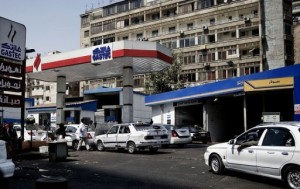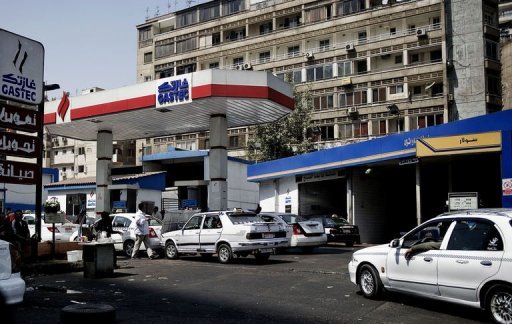
(AFP\Photo)
By:Nada Badawi
Fuel shortages are becoming an everyday hassle for cab drivers and industrial and agricultural sectors following the government’s decision to increase fuel prices by 50%.
“The queues are every day,” said cab driver Atef Mahmoud. “It’s almost impossible to go to work or home because there’s simply not enough time.”
“The people need to go to work, [they] are denying us basic access to do so” added Mahmoud who spends two hours commuting from Boulaq to his work.
He complained about the government’s lack of response regarding price hikes, describing it as “unfair” at the current time.
The fuel price hikes have recently led to traffic jams at nearby gas stations and scuffles with fuel consumers. Many operating businesses and factories have been forced to shut down as a result of price increases.
“A reaction to such a decision of this magnitude is normal, given the economic crisis in the country,” said President of the Petroleum Resources Division Hossam Arafat.
Arafat explained that the decision to increase prices was made abruptly without the knowledge of business owners and companies.
He stressed that the lack of foreign currency has made this a bigger problem.
Kamal, however, made a public statement saying that “the problem is not due to shortages but rather due to an uneven distribution of the commodity across Egypt”.
At the same time, the government decided to curb fuel subsidies through the introduction of a smart card system, which was introduced by Minister of Petroleum and Mineral Resources Osama Kamal.
The system aims to provide consumers with a restricted amount of subsidised fuel and is to be implemented sometime between April and June.
The reduction in subsidised fuel, among many other products and services, is part of the government’s plan to make Egypt eligible for the proposed $4.8bn IMF loan.
As a result of the crisis, the black market has been thriving at selling consumers fuel at double prices ranging from 40-50 EGP per 20 litres as opposed to the regular 20 EGP of the same commodity.




